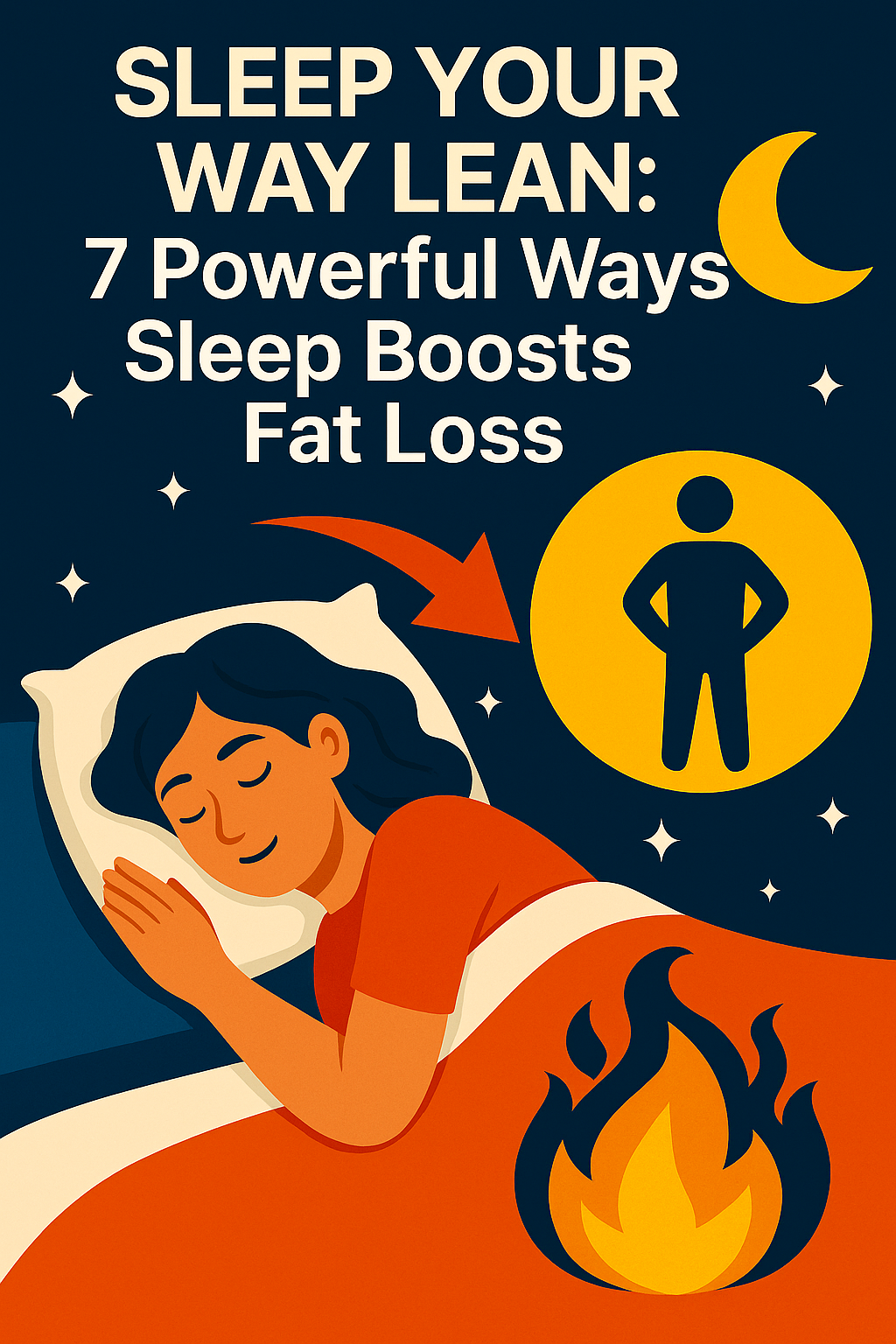Abstract
Sleep is not merely a passive state of rest—it’s a powerful biological force in the fight against fat. Emerging research reveals that sleep regulates hormones, controls cravings, and optimizes metabolism. This article uncovers seven scientifically proven mechanisms that explain how quality sleep boosts fat loss.
Introduction
What if the missing piece in your fat-loss strategy isn’t your diet or your workouts — but your sleep?
A growing body of research now shows that high-quality sleep may be the secret weapon for shedding stubborn fat.
In this post, we’ll explore 7 science-backed mechanisms through which sleep directly boosts fat loss — including metabolism, hormones, and more.
And if you’re serious about night-time fat-burning, check out our guide to the top 10 fat-burning foods to eat before bed
Methods
We examined findings from sleep science, metabolic health, and endocrinology journals. Key data was extracted from randomized controlled trials, systematic reviews, and population-based studies to identify the metabolic benefits of sleep.
Results: 7 Ways Sleep Boosts Fat Loss
1. Increases Leptin, Decreases Ghrelin
When you sleep well, your leptin levels rise (helping you feel full), while ghrelin drops (reducing hunger). Poor sleep flips this equation—leading to increased cravings, especially for high-calorie foods.
2. Enhances Growth Hormone Release
Deep sleep is when your body produces the most growth hormone (GH). GH helps you burn fat and repair muscle—key to a leaner body.
3. Improves Insulin Sensitivity
Short or poor-quality sleep makes you more insulin-resistant. This means more sugar stays in your bloodstream and gets stored as fat. Quality sleep keeps insulin working efficiently.
4. Boosts Resting Metabolic Rate (RMR)
RMR is the number of calories your body burns at rest. Sleep deprivation reduces it, meaning you burn fewer calories—even while doing nothing. Sleep restores your RMR.
5. Reduces Cortisol Levels
Cortisol (your stress hormone) increases fat storage, especially around the belly. Lack of sleep spikes cortisol levels. Consistent, deep sleep lowers it—helping your body stay in fat-burning mode.
6. Resets Your Circadian Rhythm
A well-regulated circadian rhythm keeps your metabolism and hunger hormones on track. Sleeping and waking at consistent times optimizes fat oxidation and reduces late-night snacking.
7. Enhances Recovery & Performance
Better sleep means faster muscle recovery, improved training performance, and more fat burned through exercise. Poor recovery leads to sluggish workouts and fewer calories burned.
Expert Highlight
“Chronic sleep deprivation is strongly associated with reduced leptin, increased ghrelin, and a higher body mass index (BMI).”
— Van Cauter E., University of Chicago Sleep Study
Discussion
The hormonal regulation observed during quality sleep—especially of leptin, ghrelin, insulin, and cortisol—has powerful effects on body composition.
In fact, sleep may be just as essential as diet and exercise when it comes to maintaining a healthy metabolism.
According to the National Sleep Foundation, sleep deprivation disrupts the body’s metabolic efficiency, which can lead to increased fat storage and muscle loss.
References
- St-Onge, M. P., Mikic, A., & Pietrolungo, C. E. (2016). Effects of Diet on Sleep Quality. Advances in Nutrition, 7(5), 938–949. https://doi.org/10.3945/an.115.010272
- Ogilvie, R. P., & Patel, S. R. (2017). The epidemiology of sleep and obesity. Sleep Health, 3(5), 383–388.
- Klingenberg, L., et al. (2023). Sleep restriction and its effects on energy metabolism. Nature Scientific Reports

